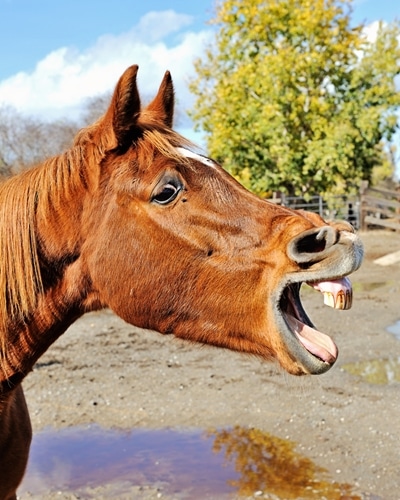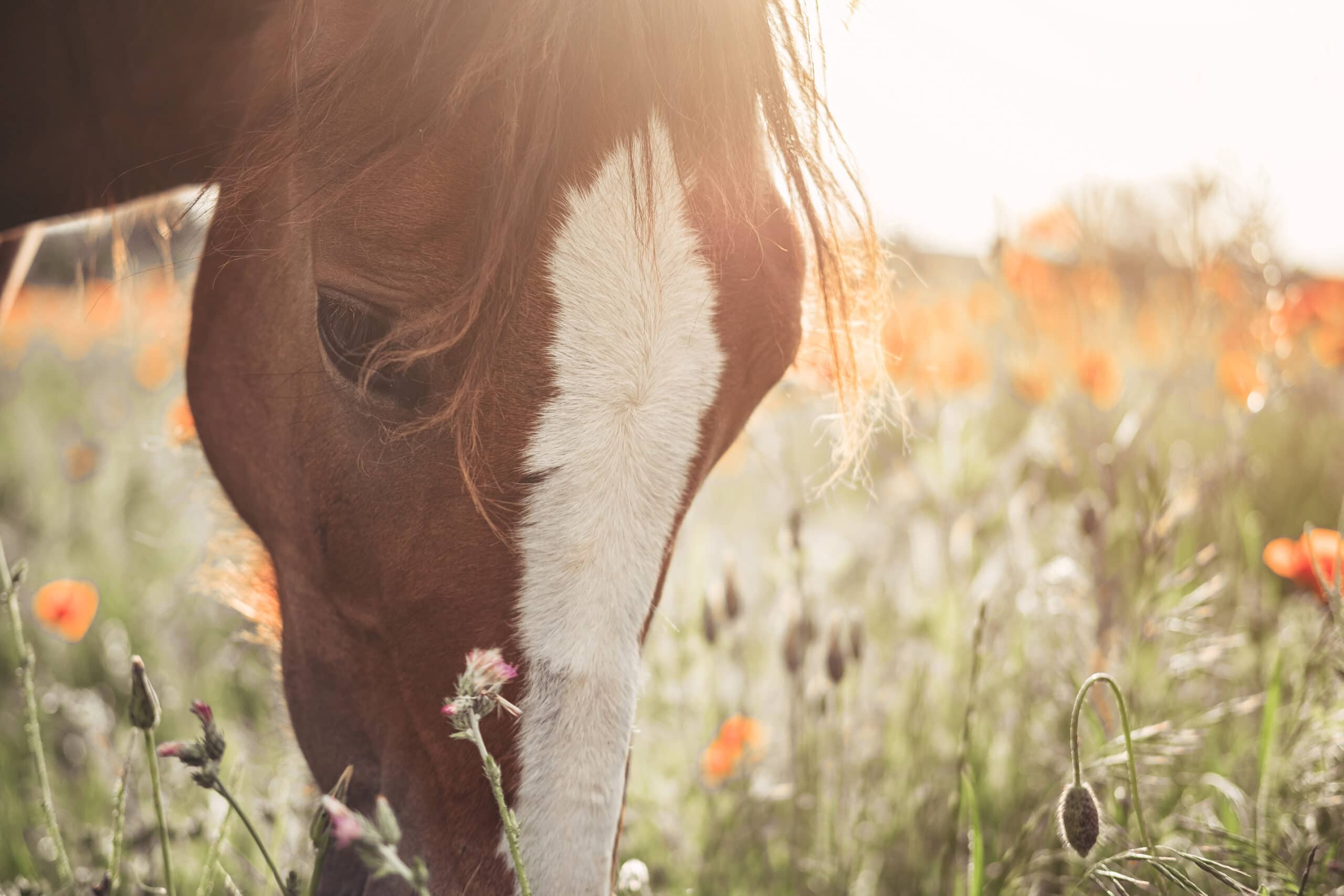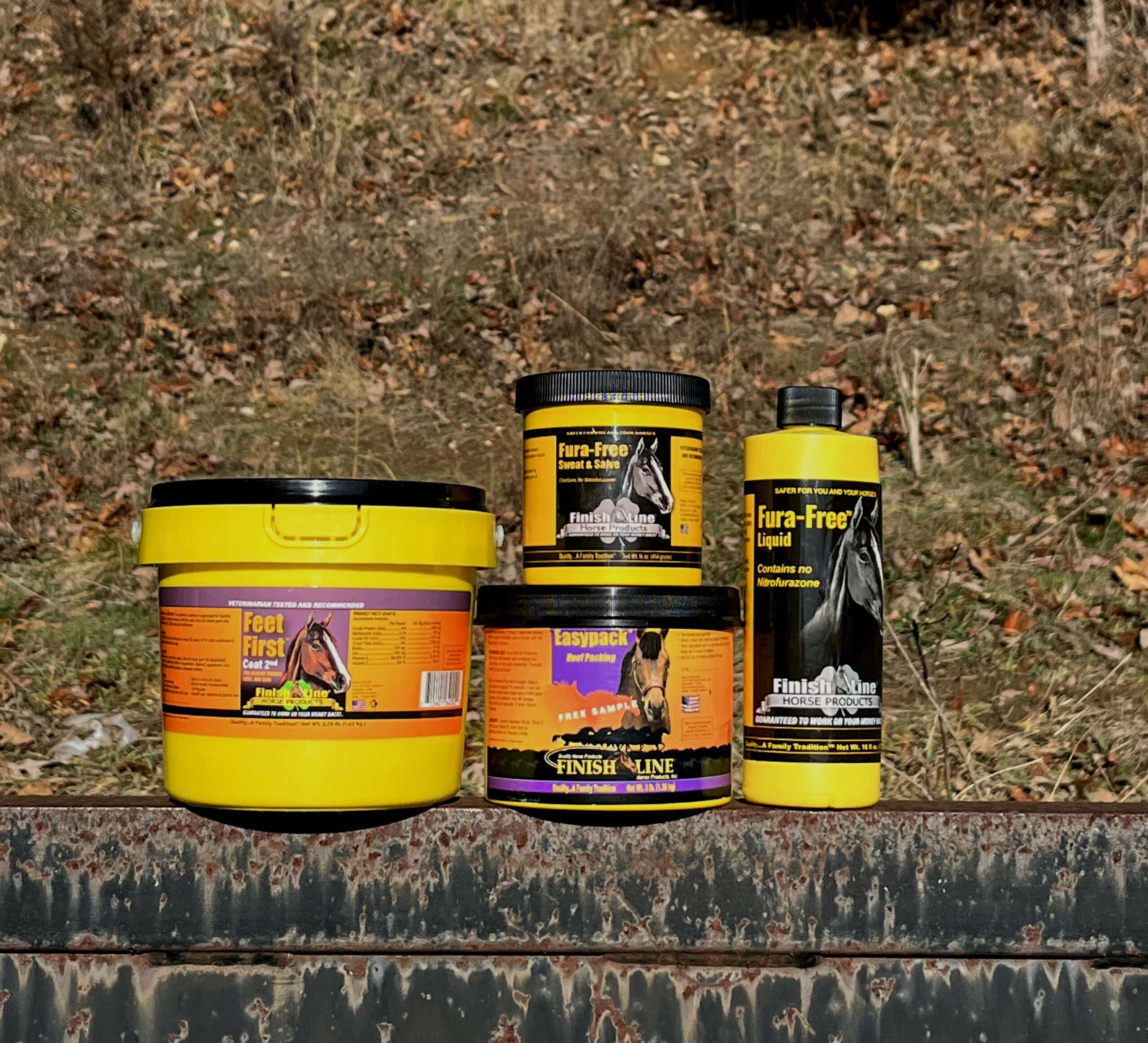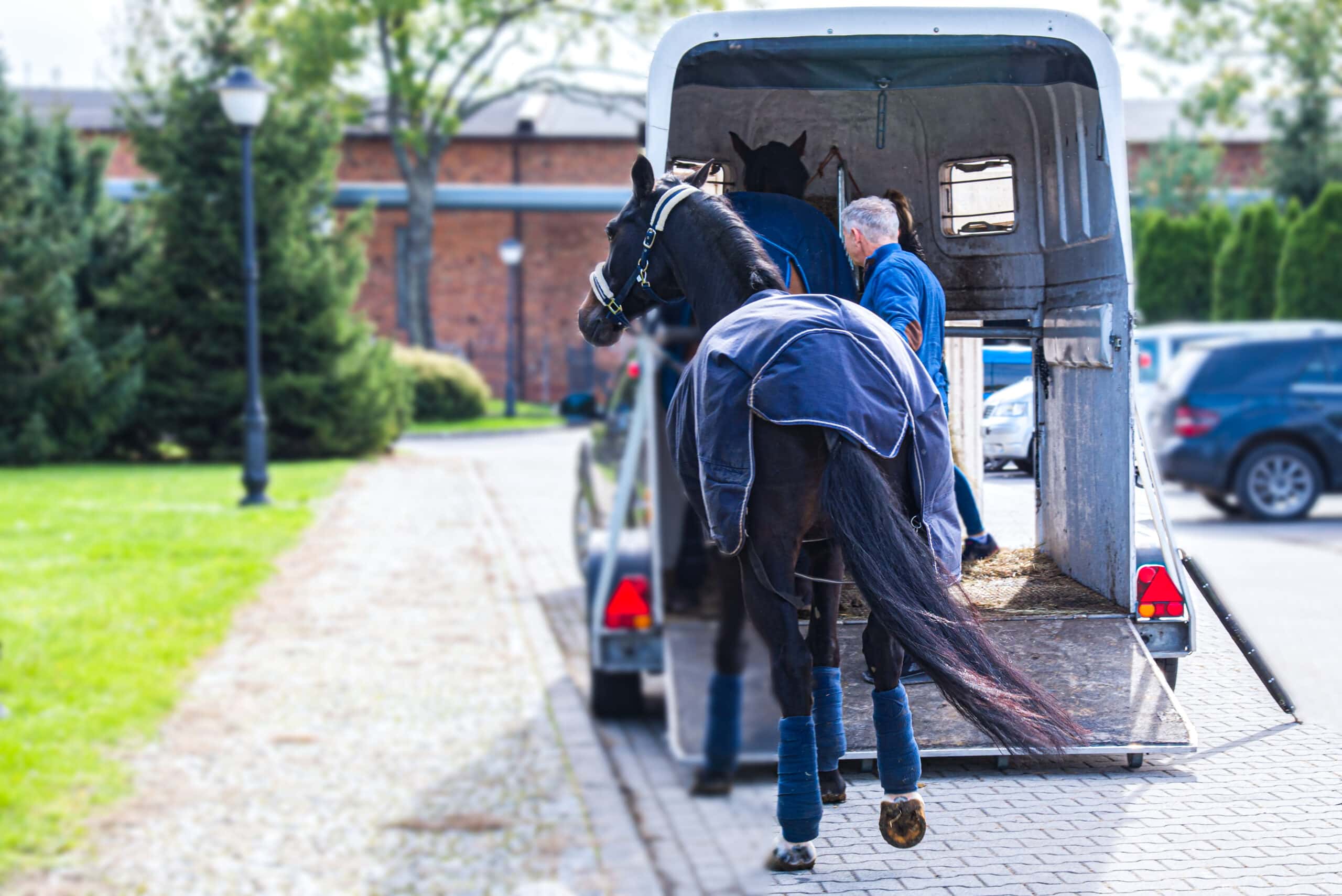The dental health of your horse is one of the more overlooked elements to maintaining the overall well-being of an equine. Failing to properly address dental complications can affect more than a horse’s mouth, as the pain can make a grave impact upon overall performance and communication with the rider. According to the American Association of Equine Practitioners, ongoing dental problems with your horse may lead to a wide variety of ailments, including:
- Swelling in jaw and face
- Gum disease
- Bleeding from mouth
- Foul odor from nostrils
- Decrease in overall performance
- Ignoring commands
- Loss of body condition
If oral exams aren’t a frequent part to your horse’s health maintenance, you need to amend your management plan. A young horse that is less than five years old should have oral exams at least twice a year. Horses between five and 15 years should receive one annually while horses older than 15 can get away with one every year or two. But just because you’re not a licensed veterinarian or dentist doesn’t mean you shouldn’t know the ins and outs of proper horse dental health. Here’s a go-to guide for all the types of oral exams a horse needs to preserve its well-being and continue an active lifestyle:
Head symmetry
One of the first things you can check out to evaluate your horse’s dental health doesn’t even require opening its mouth. Facial asymmetry is a common sign that a horse’s oral health may not be in good condition, and noticing facial deformation such as excessive swelling could mean the animal is experiencing a tooth pathology or disease. Make sure to notify your veterinarian immediately if you begin to see any abnormalities with your horse’s facial features.
Digestive complications
While any digestive problems your horse is experiencing could mean a lot of things, they can also indicate deteriorating oral health. Processing food all begins with chewing to help break down what your horse is consuming, and if a toothache or root disease is progressing, your horse may not be able to properly digest its meals. Whether it’s diarrhea or abdominal pain, don’t take these symptoms lightly, and consider having your horse’s teeth examined.
Mouth tissues
The primary form of testing for proper oral health is inspecting the interior tissues of the mouth, which is usually the best means for detecting any abnormalities. For starters, if you ever notice any bleeding occurring from the gums or under the tongue, you’ll need to contact a veterinarian right away. Traces of blood-tinged mucus could mean anything from tooth decay to an actual infection within the root canal, and the earlier your horse receives medical treatment, the easier it is to cure the ailment. Even excessive drooling or continual nasal discharge can be traced back to inadequate oral health, so make sure to monitor these types of symptoms as well.
Color irregularities
Whenever you’re inspecting your horse’s mouth, you should always take notice of how everything is colored, from gums to teeth. The cementum inside the horse’s mouth, which is the tissue that covers the sides of the teeth, should always be a distinct yellow. Anything darker is a common sign that there might be an infection. Another important area of the teeth to take note of color is the dentin, which is the tissue that makes up the majority of the tooth. Typically, a horse’s dentin should be a darker shade of tan, but if it begins to progress into a more solid shade of black, there could be a severe complication at hand.
Bad breath
Lastly, the easiest way to detect abnormalities in a horse’s oral health is by noticing bad breath. A lingering stench from the mouth can mean that tooth decay is taking place, and shouldn’t be dismissed as just a characteristic that will soon pass.









